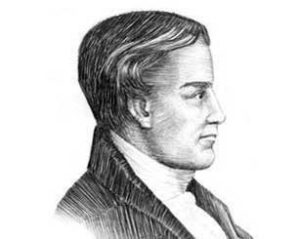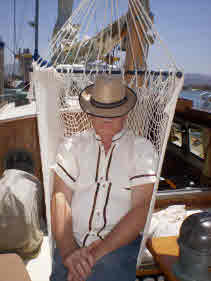 Robert Murray M’Cheyne (pronounced “Mak-shayn”) was a minister for the Church of Scotland (Presbyterian) from 1835 – 1843. Although he died of typhus at age 29, M’Cheyne left an incredible legacy. He was a very pious young man, praying for two hours every day (and six on Sunday), but what he is best known for is his “Daily Bible Reading Plan.” It’s a very simple schedule that allows the reader to completely read the Bible through once a year and the New Testament and Psalms through twice. It only requires reading four chapters a day.
Robert Murray M’Cheyne (pronounced “Mak-shayn”) was a minister for the Church of Scotland (Presbyterian) from 1835 – 1843. Although he died of typhus at age 29, M’Cheyne left an incredible legacy. He was a very pious young man, praying for two hours every day (and six on Sunday), but what he is best known for is his “Daily Bible Reading Plan.” It’s a very simple schedule that allows the reader to completely read the Bible through once a year and the New Testament and Psalms through twice. It only requires reading four chapters a day.
Let’s look at the reading schedule for January 1st. John R.W. Stott calls these readings the “Four Beginnings.” Read Genesis 1 – the beginning of the world. Then read Ezra 1 – the new beginning for Israel, followed by Matthew 1 – the beginning of the Gospel, and finish with Acts 1 – the beginning of the Church. On January 2, read Genesis 2, Ezra 2, Matthew 2, and Acts 2. On January 3, read Genesis 3, Ezra 3, Matthew 3, and Acts 3. Simple! Now notice the beauty of this system.
When people set out to read the Bible, they either begin with Genesis, the first book of the Old Testament, or they begin with Matthew, the first book of the New Testament. If you begin with Genesis intending to read through the entire Bible sequentially, most people give up somewhere in the dense book of Leviticus when we encounter all the rules for the Jewish people. On the other hand, if you begin with Matthew, the first chapter contains the genealogy of Jesus. Just pronouncing the names is a huge challenge for most people and, frankly, not that inspirational so many good intensions are shipwrecked here.[1] M’Cheyne’s plan avoids this problem. He surrounds Matthew 1 with the story of the creation of the world in Genesis 1, Ezra’s amazing story in Ezra 1, and the inspiring story of the beginning of the Church in Acts chapter 1 and so it is for the rest of the Bible. Brilliant!
In our next article, we’ll try to answer the question, “Why read such an old book?” Meanwhile, here is M’Cheyne’s plan for January:

[1] Although time spent studying this text is truly rewarding! See my articles, “Count Down to Christmas,” parts 1, 2, and 3.








